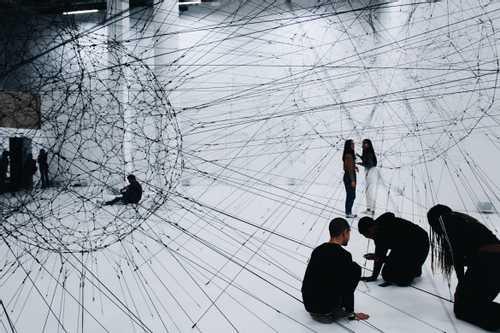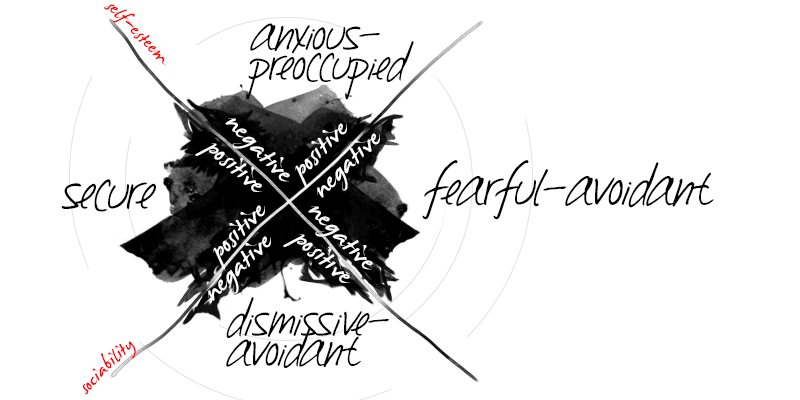Learn more about loveandrelationships with this collection
Improving sleep through mindful breathing exercises
Practicing stress reduction and relaxation techniques
Establishing a relaxing bedtime routine
Attachment Theory
Attachment theory is an area of psychology that describes the nature of emotional attachment between people, starting with your parents. The quality of how well you were cared for will then influence the nature of your relationships later in life.
There are four attachment strategies: secure, anxious, avoidant, and anxious-avoidant.
1.44K
5.85K reads
Secure Attachment Style
- People with this style are comfortable showing interest and affection.
- They are comfortable being alone and independent.
- They can correctly prioritize their relationships.
- They are able to draw clear boundaries and stick with them.
50% of the population is secure attachment types.
1.32K
4.77K reads
Anxious Attachment Style
- They are often nervous and stressed about their relationships.
- They need constant reassurance and affection from their partners.
- They have trouble being alone or single.
- They are often in unhealthy or abusive relationships.
- They have trouble trusting people.
- Their behavior can be irrational and overly emotional.
1.47K
4.95K reads
Avoidant Attachment Style
- They are highly independent.
- They are self-directed.
- They are uncomfortable with intimacy.
- They complain of not enough personal space when people try to get close to them.
- They have an exit strategy in every relationship.
1.34K
4.77K reads
Anxious-Avoidant Attachment Style
- They are also known as the "fearful type."
- They are afraid of intimacy and commitment, and they are distrustful.
- They spend much of their time alone and miserable, or in dysfunctional relationships.
- They often suffer from emotional problems in other areas of their life.
1.29K
4.3K reads
How Attachment Styles Are Formed
Our attachment styles are influenced by how we related to our parents as infants and set the pattern for how we perceive relationships as we mature.
As we get older, we continue to build on this pattern when we form relationships with our peers and other people.
1.16K
3.17K reads
Relationship Configurations
Different attachment types tend to configure themselves into relationships in predictable ways.
- Secure types can handle both anxious and avoidant types in a relationship.
- Anxious and avoidants regularly end up in relationships with one another and less frequent with their own types.
- Anxious-avoidants only date each other or the least secure of the anxious types or avoidant types. These relationships are often very messy.
1.2K
4.1K reads
Changing Your Attachment Style
Your attachment style can change over time to a more secure style or an insecure style if they're not careful.
An extreme negative event, such as divorce, death of a dear one, a serious accident, etc. can cause a secure attachment type to move into a more insecure attachment type.
1.16K
3.22K reads
Navigating to a secure attachment type
Anxious types can work on developing themselves, creating healthy boundaries and fostering a healthy self-image.
Avoidant types can work on opening themselves up to others and share more about themselves.
1.28K
3.81K reads
CURATED BY
If music is your love language, find someone who understands your undying need to spend your weekends hula-hooping in neon lights.
More like this
1 idea
Attachment Theory: Overview and Implications - The Human Condition
thehumancondition.com
10 ideas
The 4 Attachment Style (With tips on how to overcome the unhealthy)
mindbodygreen.com
8 ideas
How Attachment Styles Affect Adult Relationships
helpguide.org
Read & Learn
20x Faster
without
deepstash
with
deepstash
with
deepstash
Access to 200,000+ ideas
—
Access to the mobile app
—
Unlimited idea saving & library
—
—
Unlimited history
—
—
Unlimited listening to ideas
—
—
Downloading & offline access
—
—
Personalized recommendations
—
—
Supercharge your mind with one idea per day
Enter your email and spend 1 minute every day to learn something new.
I agree to receive email updates



